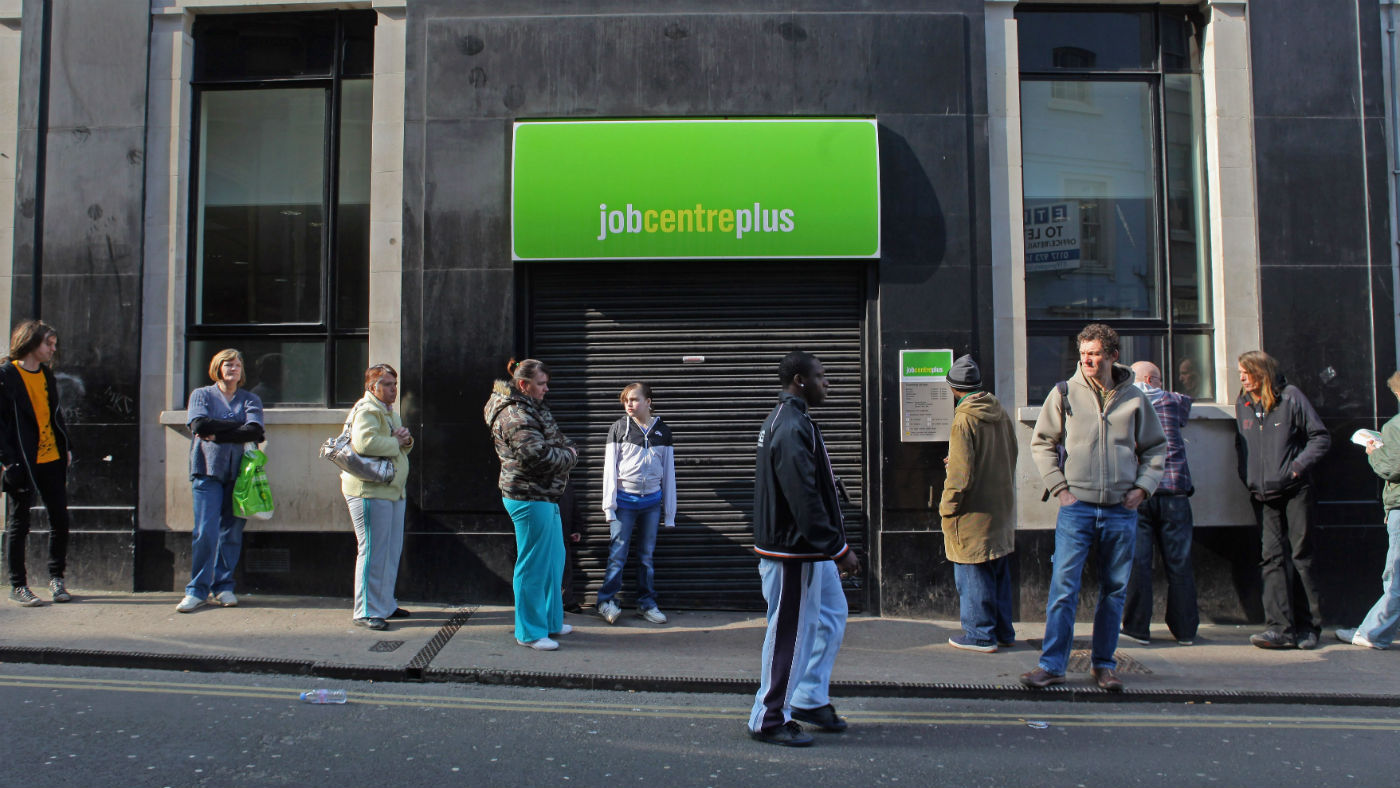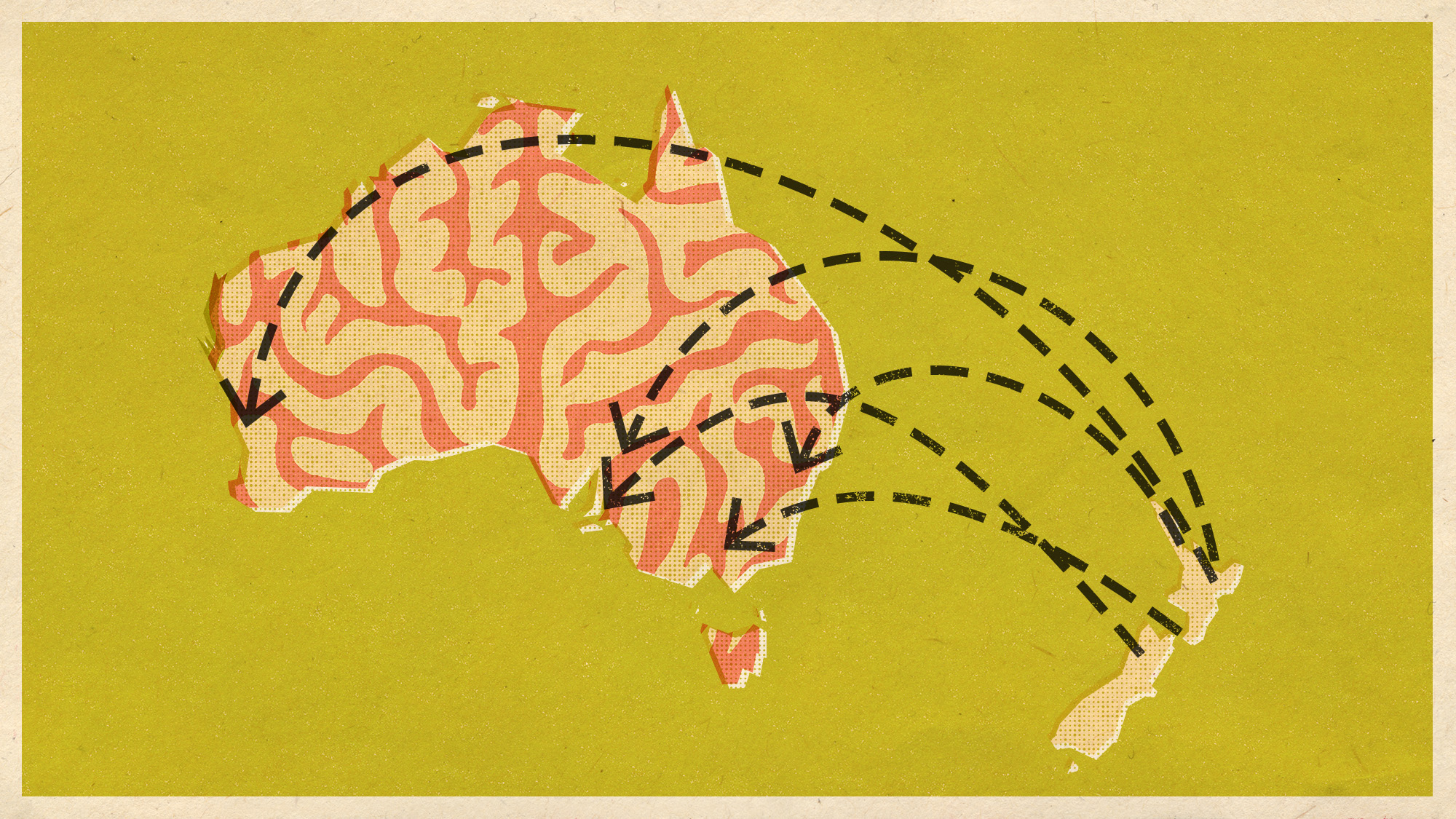Coronavirus job losses: what help can you claim?
Number of people on unemployment benefit per vacancy increases fivefold

A free daily email with the biggest news stories of the day – and the best features from TheWeek.com
You are now subscribed
Your newsletter sign-up was successful
There are now eight people claiming unemployment benefits for every one job vacancy, an employment think tank has found.
The Institute for Employment Studies (IES) said the number of people claiming unemployment benefits per job vacancy has increased more than fivefold since the outbreak of the coronavirus pandemic.
How bad have job losses been?
The Week
Escape your echo chamber. Get the facts behind the news, plus analysis from multiple perspectives.

Sign up for The Week's Free Newsletters
From our morning news briefing to a weekly Good News Newsletter, get the best of The Week delivered directly to your inbox.
From our morning news briefing to a weekly Good News Newsletter, get the best of The Week delivered directly to your inbox.
There are now eight people claiming the allowance for every one job vacancy, compared to just 1.5 people in March.
As well as more people losing their jobs because of the pandemic, the number of available positions has fallen dramatically.
The number of vacancies in the UK has dropped by half a million since January, falling to 333,000 in June - the lowest levels since records began in 2001, reports The Guardian.
And the number of people claiming unemployment-related benefits has climbed by 112% since March, and is now at 2.6 million.
A free daily email with the biggest news stories of the day – and the best features from TheWeek.com
Tony Wilson, head of the Institute for Employment Studies, said he expected the numbers of unemployed to continue rising as the number of vacancies drops.
“At least 1 million more people are on out of work benefits who don’t have incomes, and who are looking for work as the economy reopens. So we have double whammy: many more people looking for work and very few jobs being advertised,” he said.
What can you claim if your employer temporarily closes?
Under the Coronavirus Job Retention Scheme, the government will currently pay 80% of furloughed workers’ wages, up to £2,500 a month, if they have been put on leave as a result of the outbreak.
A total of around 7.5 million employees - 27% of the UK workforce - are now being paid through the furlough scheme. From August, furloughed workers will be able to return to work part-time, with employers asked to pay towards their salaries.
The amount the government contributes will drop to 70% in September, and 60% in October. The Coronavirus Job Retention Scheme will fully close on 31 October 2020.
What about if you lose your job?
If your employer does not retain you during the shutdown period and you permanently lose your job, you cannot apply for the government’s wage scheme.
You may be able to get Universal Credit if you fit the following criteria:
- You are on a low income or out of work
- You are 18 or over (there are some exceptions if you’re 16 to 17)
- You are under State Pension age (this is calculated based on your gender and date of birth)
- You and your partner have £16,000 or less in savings between you
- You live in the UK
Universal credit is a monthly payment and was introduced to consolidate a group of previous benefits, including income-based jobseeker's allowance, housing benefit, child tax credit and working tax credit, into one.
The BBC reports that in October 2019, there were 2.6 million universal credit claimants.
The application process for Universal Credit can be longer than the 14 days recommended for self-isolation. Also, if your claim is successful, you will have to wait at least five weeks for the first payment.
More information about Universal Credit can be found on the gov.uk website here.
If you are employed but are laid off or put on short-time hours for either four weeks in a row or six weeks in a 13-week period, you may be eligible to apply for redundancy.
According to the gov.uk website, you will normally be entitled to statutory redundancy pay if you’re an employee and you’ve been working for your current employer for two years or more.
You will normally get:
- Half a week’s pay for each full year you were under 22-years-old
- One week’s pay for each full year you were 22-years-old or older, but under 41
- One and a half week’s pay for each full year you were 41-years-old or older
More information about applying for redundancy can be found on the gov.uk website here.
If you suddenly find yourself without a job, you can also get help with finding a new position and the costs entailed in applying for jobs from the Jobcentre Plus Rapid Response Service.
-
 Corruption: The spy sheikh and the president
Corruption: The spy sheikh and the presidentFeature Trump is at the center of another scandal
-
 Putin’s shadow war
Putin’s shadow warFeature The Kremlin is waging a campaign of sabotage and subversion against Ukraine’s allies in the West
-
 Media: Why did Bezos gut ‘The Washington Post’?
Media: Why did Bezos gut ‘The Washington Post’?Feature Possibilities include to curry favor with Trump or to try to end financial losses
-
 Unemployment rate ticks up amid fall job losses
Unemployment rate ticks up amid fall job lossesSpeed Read Data released by the Commerce Department indicates ‘one of the weakest American labor markets in years’
-
 Is the UK headed for recession?
Is the UK headed for recession?Today’s Big Question Sluggish growth and rising unemployment are ringing alarm bells for economists
-
 What's Jeff Bezos' net worth?
What's Jeff Bezos' net worth?In Depth The Amazon tycoon and third richest person in the world made his fortune pioneering online retail
-
 'Brain drain' fear as record numbers leave New Zealand
'Brain drain' fear as record numbers leave New ZealandUnder The Radar Neighbouring Australia is luring young workers with prospect of better jobs
-
 Are we getting a 'hard landing' after all?
Are we getting a 'hard landing' after all?Today's Big Question Signs of economic slowdown raise concerns 'soft landing' declarations were premature
-
 Ghost kitchens are pulling a disappearing act
Ghost kitchens are pulling a disappearing actunder the radar The delivery-only trend is failing to live up to the hype built up during the pandemic
-
 The birth of the weekend: how workers won two days off
The birth of the weekend: how workers won two days offThe Explainer Since the 1960s, there has been talk of a four-day-week, and post-pandemic work patterns have strengthened those calls
-
 Why household wealth took off during the pandemic
Why household wealth took off during the pandemicUnder The Radar The Covid-19 pandemic caused a lot of pain and hardship, but new research shows it also left most Americans wealthier